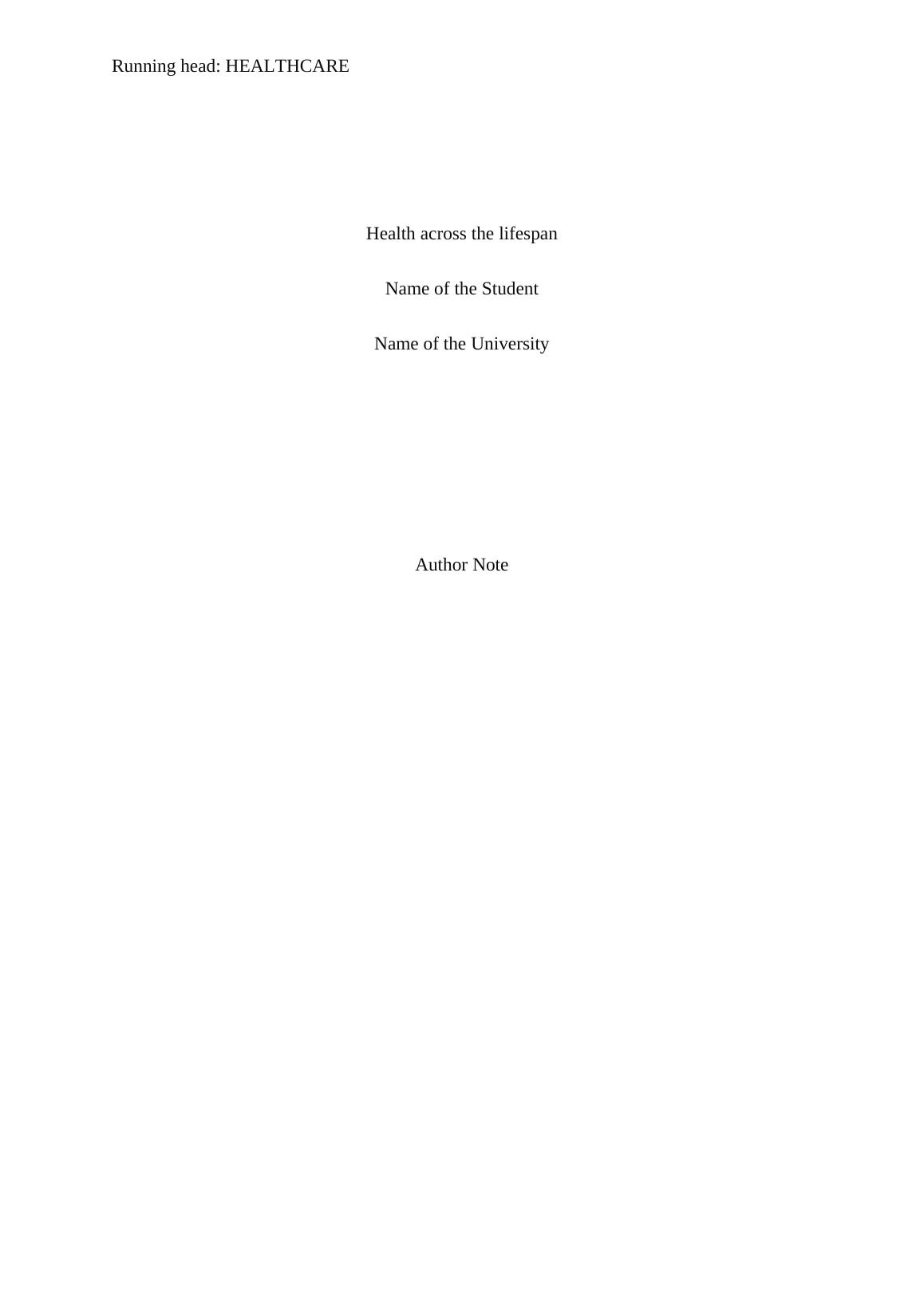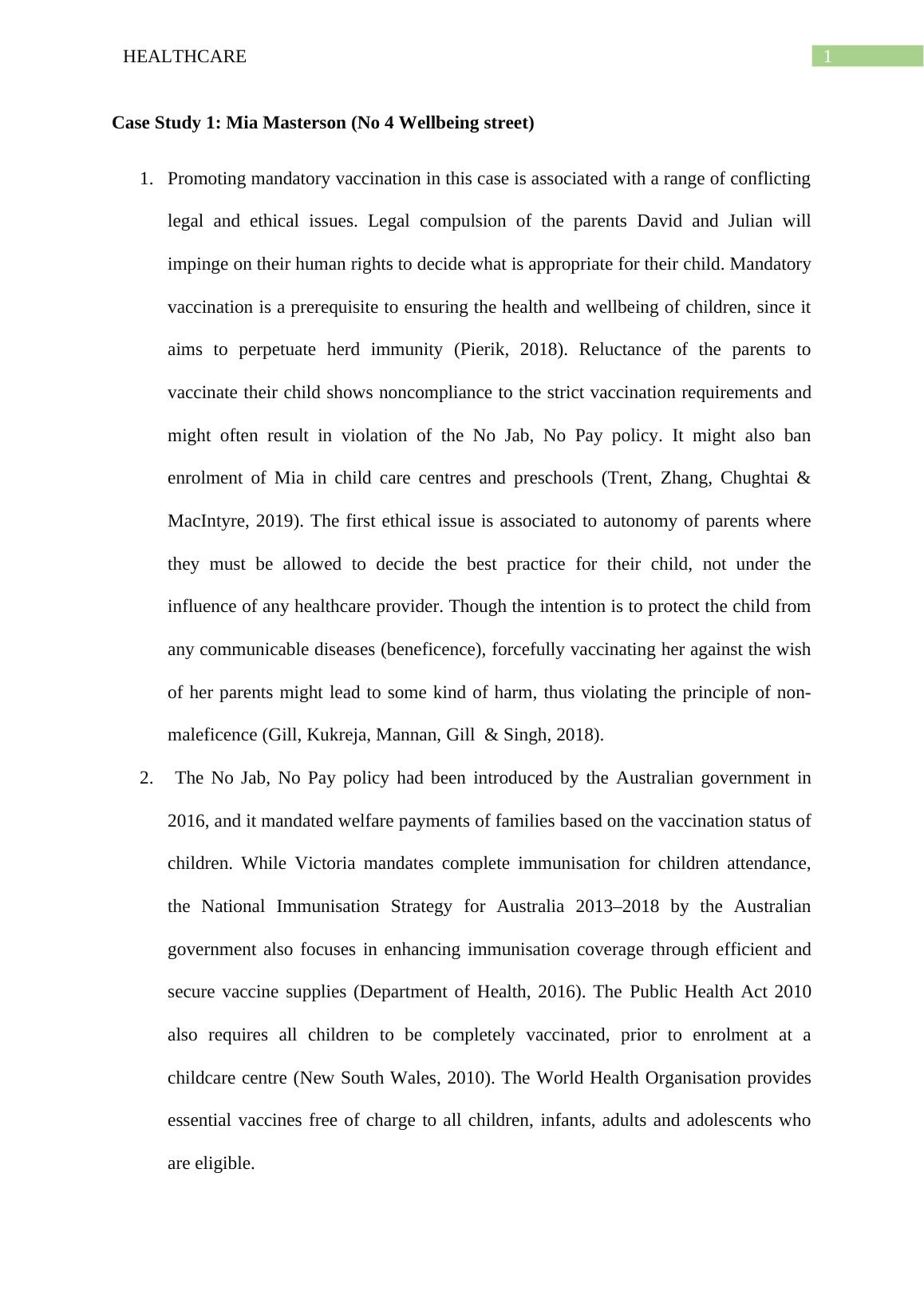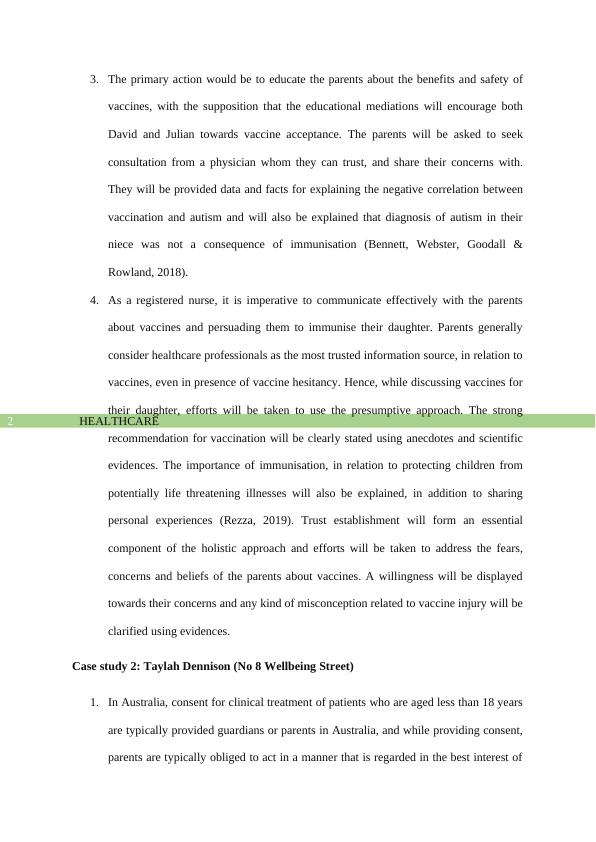The Case of Mia Masterson (No 4 Wellbeing street) Promoting mandatory vaccination
Students are required to read three case studies and provide evidence-based responses addressing legal and ethical issues, legislation/guidelines, necessary actions as a registered nurse, and holistic patient and family-centered care.
10 Pages2630 Words295 Views
Added on 2022-08-16
About This Document
The first ethical issue is associated to autonomy of parents where they must be allowed to decide the best practice for their child, not under the influence of any healthcare provider. The first ethical issue is associated to autonomy of parents where they must be allowed to decide the best practice for their child, not under the influence of any healthcare provider. The Public Health Act 2010 also requires all children to be completely vaccinated, prior to enrolment at a childcare centre (New South Wales, 2010).
The Case of Mia Masterson (No 4 Wellbeing street) Promoting mandatory vaccination
Students are required to read three case studies and provide evidence-based responses addressing legal and ethical issues, legislation/guidelines, necessary actions as a registered nurse, and holistic patient and family-centered care.
Added on 2022-08-16
ShareRelated Documents
End of preview
Want to access all the pages? Upload your documents or become a member.
The reluctance of the parents
|11
|2870
|25
Health across the Lifespan | Ethics in Healthcare | Case Study
|11
|2873
|18
Legal and ethical consideration in child and family nursing
|11
|2740
|32
Child Abuse | Case Study | Assignment
|8
|2302
|212
Child And Family Health- Case Studies
|11
|2452
|30



